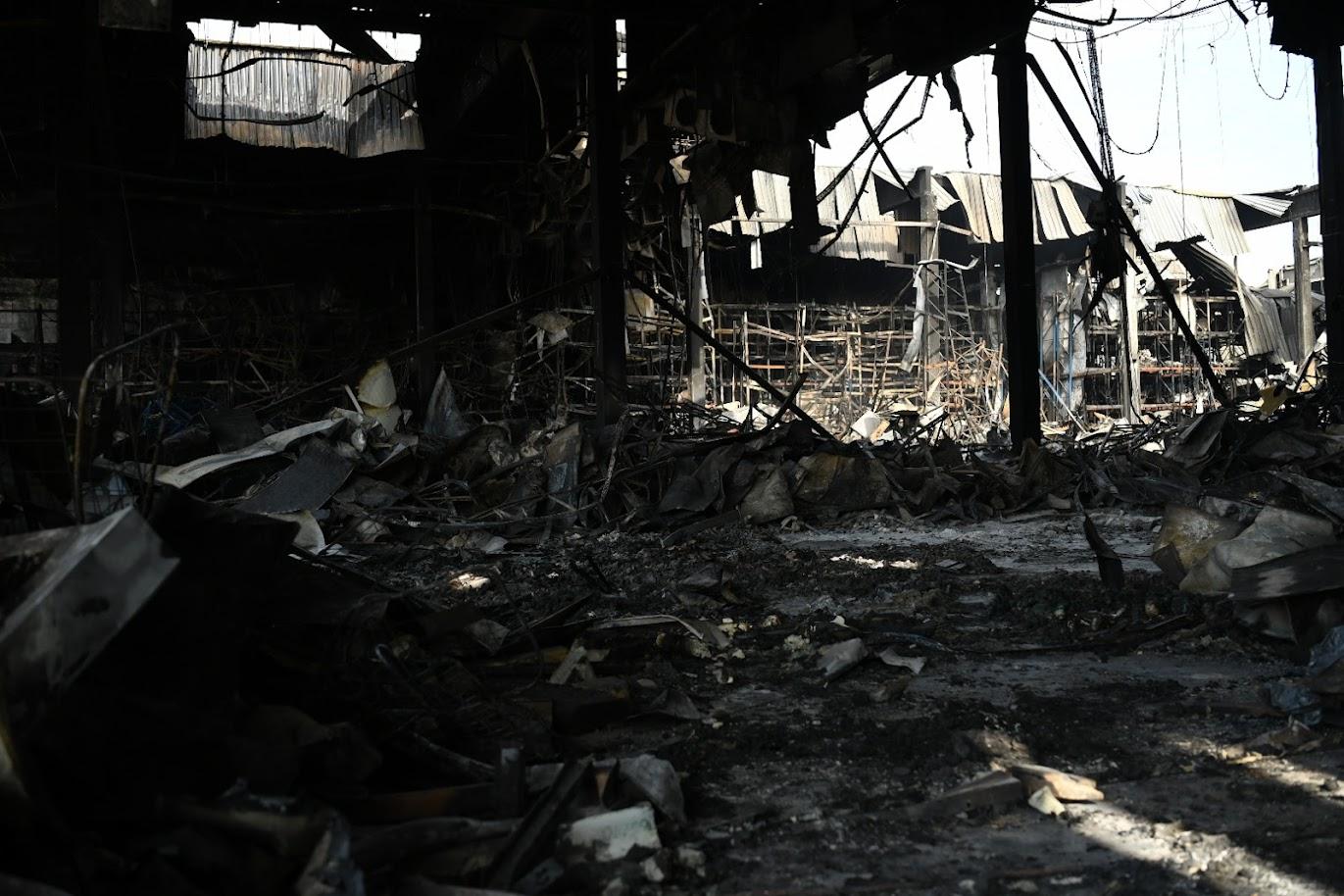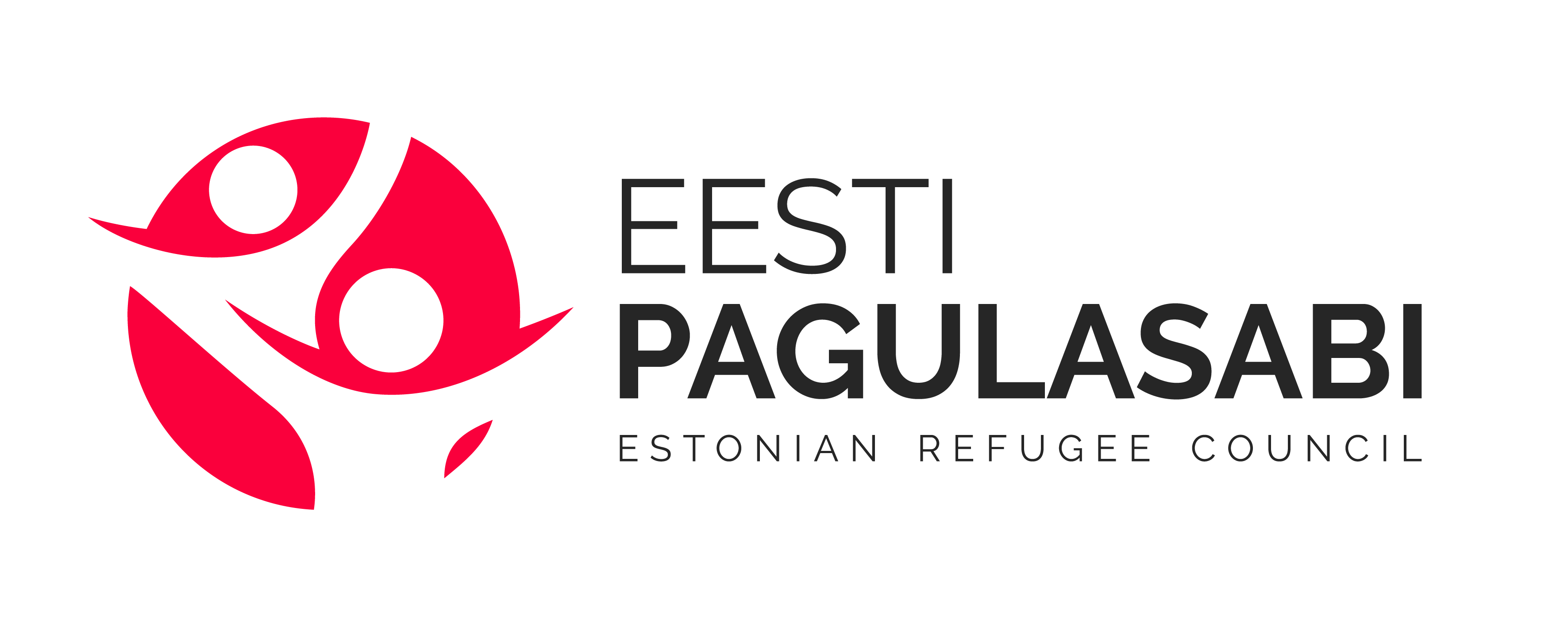
Estonian Refugee Council’s status report as of April 18
- In Ukraine, we have already reached more than 10 000 households with multi-purpose cash assistance
- From April 17, we extended our multi-purpose cash assistance with the funding from the Ukraine Humanitarian Fund managed by the United Nations Office for the Coordination of Humanitarian Affairs (OCHA). With this project, we will within three months provide cash-based assistance in total to 12 000 people in the Zaporizhia and Donetsk oblasts. Last week, we signed a cooperation agreement with the World Food Programme (WFP) to support 60 500 people in the Kiev, Kharkiv, Sumy and Chernihiv oblasts with multi-purpose cash assistance. More specifically under "Humanitarian aid in Ukraine".
- From last week, we started paying school support to every Ukrainian child who has received temporary protection and goes to school in Estonia, currently 331 applications have been received and data review and verification is underway
- The first psychological counselling group will start working in cooperation with Eluliin on Friday
Humanitarian aid in Ukraine
In Ukraine, we are implementing multi-purpose cash assistance, supporting hospitals in Eastern Ukraine with medical supplies, food, generators and other necessities, and distributing blankets and other essentials to people in bomb shelters.
As of April 17, we have supported 10 870 households (ca. 32 000 people). The support allowance is 2220 UAH (= about 70 EUR) per household member. The needs of each household are assessed individually, the beneficiaries are mainly families who have lost their home or family member or whose family member has been wounded in hostilities or who live in so-called isolated cities. The main areas of our humanitarian intervention are currently Kharkiv, Zaporizhia, Donetsk, Dnipropetrovsk, Kiev and Sumy oblasts, but attention is also paid to the Zhytomyr, Mykolaiv and Chernihiv oblasts. Our on-site team in Ukraine has 25 members who on a daily basis assess those in need, provide them with cash-based assistance and monitor the situation.
According to the United Nations, multi-purpose cash assistance continues to be the best way to help people, except in some regions where markets are no longer functioning. You can read more about why at the moment it is most sensible to support financially here: Eero Janson: People in Ukraine need money, not things.
We also deliver medical supplies, food and other necessities (e.g. generators) to hospitals, so far several hospitals in Donetsk, Dnipropetrovsk, Mykolaiv, Zaporizhia and Chernihiv oblasts have received support. Exceptionally, we have also in cooperation with a Ukrainian transport company sent humanitarian aid to Mykolaiv, one of the most critical areas. We have also delivered 900 blankets and other essentials to bomb shelters in the cities of Zaporizhia and Kharkiv. This week, we will receive and distribute 4600 sleeping bags in accommodations for internally displaced persons in Zaporizhia.
Last week, we signed a cooperation agreement with the World Food Programme (WFP) to support 60 500 people in the Kiev, Kharkiv, Sumy and Chernihiv oblasts with multi-purpose cash assistance. Under the WFP cooperation agreement, we will distribute within three months 12.5 million euros to those in need. Read more in the press release.
From April 17, we extended our multi-purpose cash assistance with the funding from the Ukraine Humanitarian Fund managed by the United Nations Office for the Coordination of Humanitarian Affairs (OCHA). With this project, we will within three months provide cash-based assistance in total to 12 000 people in the Zaporizhia and Donetsk oblasts.
In Ukraine, we are part of the Joint Market Monitoring Initiative (JMMI), under which we help the humanitarian sector maintain a consistent overview of how and where in Ukraine markets are operating, whether and how fast basic necessities prices are rising, and so on. Our area of responsibility is the Zaporizhia oblast, more specifically the city of Zaporizhia and the settlements of Vilniansk, Bilenke, Kushugum and Shyroke.
We coordinate all our activities with other humanitarian organizations through the United Nations OCHA cluster system. Estonian Refugee Council was the first humanitarian organization that started multi-purpose cash assistance at the very beginning of the war.
Supporting war refugees in Estonia
The Estonian Refugee Council’s counselling center in Tallinn (Liivalaia 28) continues to counsel both refugees and their loved ones every workday. An information hotline is open for Ukrainian refugees and people helping them: +372 5881 1311 (every day from 10 am to 5 pm); also e-mail: dopomoha@pagulasabi.ee.
The Refugee Council’s database has accumulated more than 3000 accommodation offers from private individuals and companies, as well as hundreds of other cooperation offers. Of these, approximately 900 are offers of private residences (separate apartment or house), the rest of the offers are shared living spaces (apartment or room shared with the owner). Of all the offers, we have already mediated 788 to households from Ukraine. We have also proactively mediated accommodation offers through the Refugee Council to local governments, who contact accommodation providers directly as needed. In Tallinn, Pärnu and Tartu are already working teams of Refugee Council volunteers, who mediate accommodation offers in state accommodation establishments so that refugees can get more permanent accommodation faster.
The Social Insurance Board and Kinnisvara24 have in cooperation created a special real estate portal for Ukrainian war refugees. We asked all not yet used accommodation providers to enter their ads in this portal. From the new portal, Ukrainians can also by themselves search for a suitable place to live, and local governments and our consultants can mediate offers. This will speed up the mediation of accommodations, as our volunteers will continue to mediate accommodations from both our database and the real estate portal. Read more about the Refugee Council’s activities regarding accommodation.
In addition, we are planning various group counselling’s for Ukrainians all over Estonia in order to offer Ukrainian war refugees the opportunity to receive high-quality information, share and analyse their experience so far, and get answers to questions that have remained confusing so far. Counselling will begin in late April. We plan counselling on four different topics: adaptation, field of work, digital skills and supporting a child's adaptation. We’ll involve various partners to conduct group counselling.
To support mental health, we are planning various group therapies, which we plan in cooperation with Eluliin. Among other things, we are preparing to conduct NET training in Russian for specialists. The first psychological counselling group will start working in cooperation with Eluliin on Friday.
From last week, we started paying school support to every Ukrainian child who has received temporary protection and goes to school, currently 331 applications have been received and data review and verification is underway.
Donations and use of donations
The biggest support at the moment is from financial donations. All our crisis activities continue to run on donations. With the help of donations, we provide humanitarian aid in Ukraine and support Ukrainians arriving in Estonia. Donations can be made in the following ways:
- By bank transfer: a transfer of a suitable size can be made to the donation account of MTÜ Eesti Pagulasabi in SEB bank: EE791010220258852223
- Via bank links: SEB, Swedbank, LHV and Paypal bank links can be found on the donation page
- Through donation telephones: Tele2, Telia and Elisa customers can donate via donation telephones: 9003801 (5 EUR), 9003802 (10 EUR), 9003803 (50 EUR)
More than 4,8 million euros has accumulated in donations for the Refugee Council, including targeted donations made for organizing evacuations and donations for activities in Estonia. Of this, 1,7 million euros has already been spent on giving humanitarian aid in Ukraine and 555 000 euros on evacuations. Read the statistics and an overview of how we organized evacuations for over a month here.
At the moment, regarding humanitarian aid, we are able to support an average of 250-300 households per day (daily cost ca. 50 000 euros), we are working to increase on-site capacity and speed.
We make transfers to our Ukrainian bank account in instalments (ca. 200-300 000 euros each), to minimize financial risks (Ukraine's banking system is currently fragile and money may "get stuck" in the bank as the war escalates, we must also keep in mind the fluctuations of the hryvnia and so that we won’t lose in value when exchanging a big amount of money). We constantly keep at least a week’s expenses worth of prepayment and a crisis reserve in our Ukrainian bank account (e.g. if the situation changes so that our local coworkers have to evacuate Zaporizhia).
We have been providing humanitarian aid in Ukraine for already 7,5 years. We coordinate our interventions in the United Nations cluster system. We have quickly scaled our systems and team to manage and respond to increased needs.
Estonian Refugee Council’s administrative costs are about 3000 euros per month (office rent, utilities, telephones, internet, etc.). These costs are covered by various projects, we don’t cover them with donations. In addition, our staff and volunteers have been working overtime since the escalation of the war to ensure the best and quickest possible assistance to those in need, including the fast directing and use of donations for the benefit of war refugees.
All our financial reports are audited annually, the reports of previous years are publicly available here: https://www.pagulasabi.ee/en/documents. If you want more detailed information, please send an inquiry to info@pagulasabi.ee.
***
Estonian Refugee Council is a non-profit association founded in 2000 and operating in the public interest, with the aim of standing up for the rights and well-being of refugees in Estonia and abroad. Estonian Refugee Council is a humanitarian aid organization certified by the European Union. In Eastern Ukraine, Refugee Council has been providing humanitarian aid since 2014.
Photo: Orin Louis Jones, Kiev
